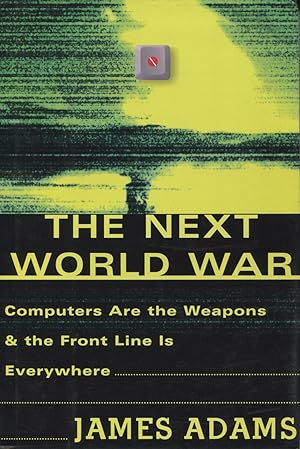Synopsis
The Washington bureau chief of the London Sunday Times draws on two decades of research and intelligence to present his theory that information is becoming the ultimate weapon as computer chips have permanently changed the nature of warfare. 30,000 first printing.
Reviews
In the Information Age, information has emerged as the ultimate weapon. Adams (Sellout, Hard Target, etc.), CEO of United Press International, argues strongly that the "revolution" in war making is occurring in the "virtual world" of "commerce, conversation, and connectivity." Adams surpasses even the Tofflers in his depiction of a Third Wave whose battlefields will be dominated by bytes, not bullets. It began with Desert Storm, when control of the electronic spectrum created an insurmountable imbalance between combatants. Somalia, Haiti and Bosnia demonstrated the power of information not merely as a force multiplier but as a paradigm shifter. In a country obsessed with minimizing casualties, information warfare seemed an ideal combination of mission facilitator and appropriations guarantor. Adams takes his readers on a comprehensive and enlightening tour of research establishments focusing on micro-electro-mechanical systems, non-lethal weapons and instantaneous communications. He then embarks on a darker journey into the world of high-level computer hacking and its implications for "cyberterrorism" with the potential not merely to threaten information security but, for example, to poison a nation's children through accessing the process control systems of cereal manufacturers. Less apocalyptic but equally important is the growing potential of information as a manipulative tool affecting governments and societies alike. In the cybernetic era, Adams contends, the offense outpaces the defense in both methods and principles. Adams's conclusion, that the U.S. is developing its information-warfare capacities while ignoring its vulnerabilities to the same techniques, is a strong reminder that technology depends for effect on matrices of insight, flexibility and will power?none of which can be generated by computers.
Copyright 1998 Reed Business Information, Inc.
Reads like science fiction that is alternately dream and nightmare. Formerly a London Sunday Times defense correspondent and now CEO of UPI, Adams (Bull's Eye, 1992, etc.) argues that the emergence of high-tech weaponry is initiating a paradigmatic change in warfare. Satellites and computers will provide tomorrow's soldiers with extraordinary knowledge of their foe, and weapons ranging from Trojan horses in computer codes to ``flying beetles'' that are actually miniature airplanes will enable warriors to control the enemy's operational environment. While fascinating and fun, the scenarios Adams presents to illustrate the future of warfare do not leave a strong impression of neutrality; for Adams the enlightened military men and women (``cyberknights'') promoting information warfare and other high-tech approaches to conflict are on the right track, and those who oppose increasing expenditures in this direction are examples of bureaucratic resistance to change. While he may be unduly open to claims of technical wizardry, however, Adams recognizes that it is a two-edged sword. The US can effectively utilize its scientific superiority in armed conflict, as demonstrated in the Gulf War, but there is a Pandora's box quality to information warfare: everyone can join in the game, and the highly technical and computerized nature of American society makes us more vulnerable than most other countries. We already have extensive experience with individual hackers who are able to penetrate mainframe computers, and Adams argues strongly for increased intelligence efforts to counteract such threats. Perhaps the biggest danger, however, is the complacency public knowledge of information warfare may engender. Showing pictures of smart bombs going through doorways may leave us believing that war can become a no-risk proposition and that information warfare is a low-cost solution to our security needs. This could leave the US looking ``like Goliath, arrogant in its power, armed to the teeth, ignorant of its weakness,'' and just as vulnerable. An odd blend of fantasy and foreboding. -- Copyright ©1998, Kirkus Associates, LP. All rights reserved.
A veteran reporter of military and intelligence affairs investigates the state of computerized warfare and paradoxically discovers that the U.S. is both the best at it and the most vulnerable to it. The Pentagon must want you to know, for it gave Adams tours of its information warfare centers. He found a doctrinal debate between change-resistant bureaucracies and younger officers cognizant of the Web's potential as a weapon. Compared with what is now possible, the Persian Gulf War's electronic razzmatazz seems primitive, and Adams' discussion of the future not only inventories what our military is experimenting with but also analyzes the top priority countries, such as Russia, China, and France, according to information warfare in their various activities against the U.S. (while acknowledging that our hackers are doing as much as they can against them). Unconvinced that the U.S. government is up to speed on the digital arms race, Adams raises awareness and reminds younger cyber-sophisticated readers of a high-demand career field: computer security. Gilbert Taylor
"About this title" may belong to another edition of this title.
